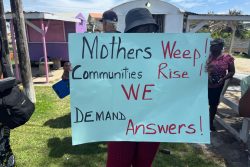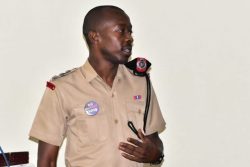 I will sort out and clear up and put in immaculate order my disgracefully disordered study/storeroom downstairs where there are dusty stacks and boxes of files, papers, diaries, correspondence and books which could one day be of interest to my descendants and even perhaps some value to scholars if I can ever get around to preserving them properly. I have been meaning to do this for at least ten years.
I will sort out and clear up and put in immaculate order my disgracefully disordered study/storeroom downstairs where there are dusty stacks and boxes of files, papers, diaries, correspondence and books which could one day be of interest to my descendants and even perhaps some value to scholars if I can ever get around to preserving them properly. I have been meaning to do this for at least ten years.
I have been slipping badly in writing notes in my journal regularly, so I will religiously write down every day some part of what I do, thoughts on events and people and what I discover in my reading. This is a useful discipline.
There you have two resolutions which even a 90 year old should be able to accomplish.
I remain poised, as I have been for quite some time, between two opposing inclinations. One is to relax, withdraw from the hustle and the hurly-burly and the frustrating daily effort to get things done and sink into reclusive peace and quiet. The other inclination is to go on working as hard as one can to clear as wide a patch of efficiency, goodwill, cultural contribution and constructive endeavour as possible in the hope of making the world a slightly better place. In considering these options, Sheila Wingfield’s poem about the Emperor Hsuang-Tsung, long a favourite of mine, reflects a belief that guides me still:
“Hsuang-Tsung, great emperor,
Giddy and ill and old, carried in a litter,
Saw the stars sway.
His conquests and his arrangements
and his powers, falling into fever with himself,
pulsed their lives away.
Bow to his shade. To be at rest
is but a dog that sighs and settles:
Better the unrelenting day.”
I do not think I would do very much in life, except retreat from it in despair, if I had become absolutely cynical and had lost all belief in the brotherhood of man. Archibald MacLeish’s poem of the pioneer astronauts seeing the world whole and entire for the first time in human history is a vision I respect and believe in:
“To see the earth as it truly is,
small and blue and beautiful
in that eternal silence where it floats,
is to see ourselves as riders on the earth together
brothers on that bright loveliness in that eternal cold,
brothers who know now that they are truly brothers.”
I know there is a tremendous amount of evidence to prove that the brotherhood of man is an idle dream and, of course, in a universal sense it may never be accomplished. But at the level of neighbourhood, community, country and region surely it is a valid belief to hold. In this not very large household of ours, prejudice against anyone because of class, creed, colour, gender or location really is despicable.
Increasingly, as time goes by, my thoughts sadly turn to old friends gone forever. The numbers have progressively escalated. This is in the nature of things. However, that stoical reflection does not make the loss any lighter. The lines of regret and love written by Callimachus, Greek poet and scholar, more than two thousand years ago, reminds me of the departure of old friends:
“Someone spoke of your death, Heraclitus.
It brought me tears
And I remembered how often together
We ran the sun down with talk.”









